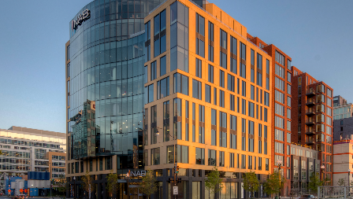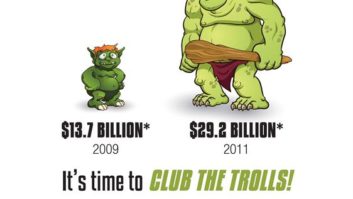XM Satellite Radio has patented a process that would allow its repeaters to transmit locally originated material.
XM says patenting the discovery was routine, while NAB has urged the FCC to prevent XM from using the patent, and to preclude XM from using its terrestrial repeaters to transmit local programming.
In a letter to the commission, NAB stated: “To put it bluntly, while XM was telling the commission that it had no plans to use the repeaters other than to fill gaps, it was actively developing technology specifically intended to provide locally differentiated material.”
NAB President/CEO Eddie Fritts stated he was “astonished” to learn of the patent. “This development indicates that the FCC International Bureau has either dropped the ball, or that XM believes it does not have to play by the rules,” stated Fritts. “Regardless, XM’s lack of candor suggests it is time for Chairman Powell and the individual FCC commissioners to put a halt to this ruse of a terrestrial repeater network.”
XM spokesman Charles Robbins said, “As scientists discover items they consider important intellectual property they apply for a patent. This was among those. We have numerous patents.”
As to NAB’s characterization of XM’s “lack of candor” with the commission, Robbins said, “We’ve been forthright from the beginning. We’ve said from the beginning that we would do a national service.”
No such patent was found for XM competitor Sirius Satellite Radio.
The Special Temporary Authority for both XM’s and Sirius Satellite Radio terrestrial repeater network is due to expire next week unless the companies receive an extension, or the FCC issues final rules governing the repeaters by that time. An FCC official said last week the agency is trying to get the rules out on time.
XM Repeater Patent Draws NAB Ire
XM Repeater Patent Draws NAB Ire







